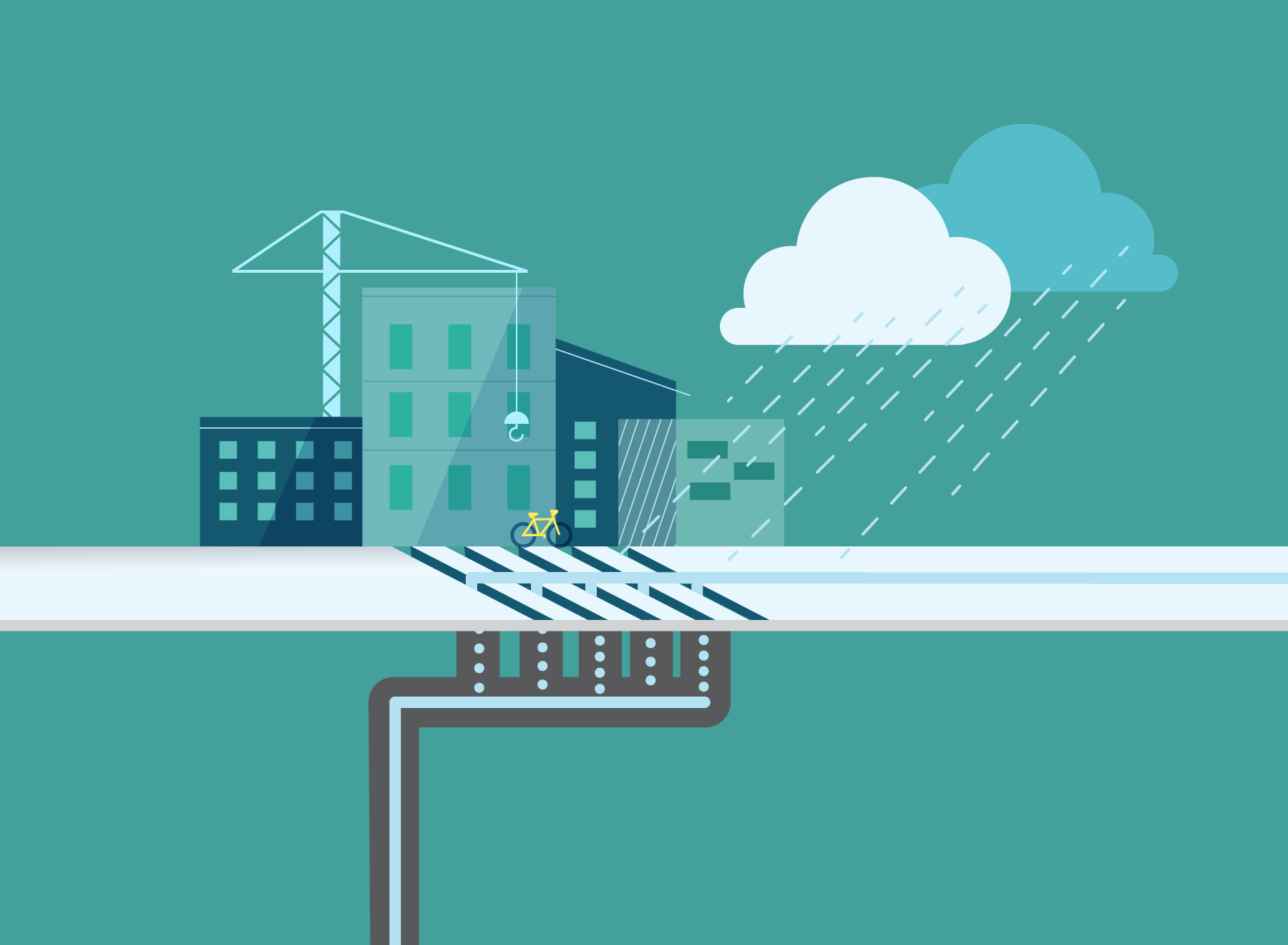
The 3.7 million Homo sapiens who live around Seattle make this a pretty spectacular place.
We truly love them and all they bring to our city. But there are another 200 million or so residents who call this area home, and we’re doing whatever we can to make their lives great, too. They go by the names Oncorhynchus tshawytscha, Oncorhynchus kisutch, Oncorhynchus nerka, and a couple of other tongue-twisters. You know them as salmon. And we’d like you to know what we’re doing to improve their habitat when we put up a building. So shall we, as they say, take a deeper dive? Scroll on.

How we build up here improves how they live down there.
We’re probably not the first to point out that it rains a lot in the Pacific Northwest. While that precipitation makes our world lush and green, it also delivers some very deadly toxins to the waters where salmon live. A report published by NOAA in 2015 showed that runoff from urban roads in Seattle can kill adult Coho salmon in less than three hours. That’s simply not acceptable because salmon depend on clean water for their survival. So, when we at Vulcan Real Estate plan and construct a new project, we do whatever we can to minimize and control runoff to make the world a better place — especially for those whose world is nothing but water.

How we keep salmon safe the Salmon-Safe way.
Doing the right thing by creatures who depend on a healthy world isn't a new idea for us. We've always believed that a successful real estate development is one that moves the meter socially, economically, and environmentally. That's why the Salmon-Safe program fits right into the Vulcan Real Estate way.
Founded a decade ago, Salmon-Safe got its start certifying farms and food-makers in Washington, Oregon, California, and British Columbia that support good land-use practices. In 2014, they extended their oversight to real estate development, and Vulcan Real Estate later became the first Salmon-Safe accredited developer in the world.
So far—with our accredited contractor partners— we’ve completed 17 Salmon-Safe certified projects with more on the horizon. And what, exactly, do we do that’s different? We follow every one of these guidelines:
Site Ecology
Building sites must be designed to help protect wetlands, streams, and wildlife.
Integrated Habitats
Building sites must be designed to support neighboring habitats.
Stormwater Management
Potential runoff must be dispersed and filtered on site through bio-filtration and low-impact development.
Habitat Protection
During construction, native soils and vegetation must be protected from site pollutants.
Water Conservation
Sources of water for construction and landscaping should have the least possible impact on natural water flows.
Learning Landscape
Completed projects should include interpretative signs to build awareness for Salmon-Safe practices.
Care for Land
Landscaping must be maintained with fertilizers and insecticides that don’t contain deadly chemicals.

Salmon love our buildings. How about you?
If you like the idea that what we do above the waterline can make life better for those beneath it, then there are plenty of things you can do to support the cause:
- Switch to natural fertilizers for landscaping
- Wash your car on the lawn or at a car wash
- Get pet waste off the ground immediately
- Use less water at your business and home
- Plant a rain garden
- Volunteer to help salmon-friendly nonprofits
For those of you looking for a new place to live, work, or open a retail business, you can also talk to us at Vulcan Real Estate. We’d be happy to show you places that could work out beautifully for you and spectacularly for salmon.







